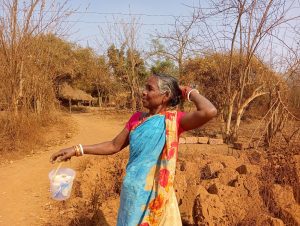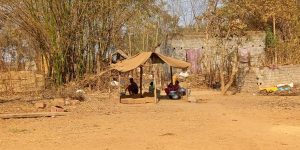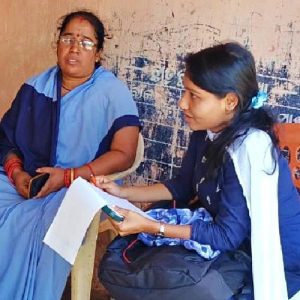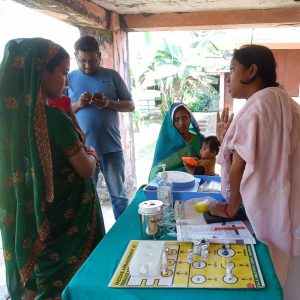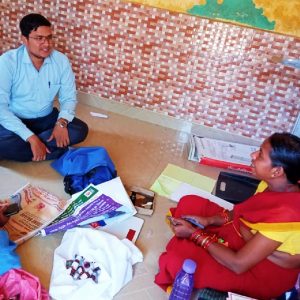ADVOCACYNET 393, February 27, 2023
Tribal People in India Take On the Scourge of Malaria
Fresh from a successful campaign to mobilize tribal communities against COVID, an Indian advocacy group is gearing up to confront malaria, one of the most feared killers in the Global South.
The campaign will be led by Jeevan Rekha Parishad (JRP – “Lifeline”), a partner of The Advocacy Project (AP), and target ten tribal villages in the state of Odisha, which has one of highest rates of malaria in the country.
JRP aims to eliminate malaria deaths completely among 3,000 pregnant women, children and elderly people by the end of 2023. The campaign will also help the remaining villagers, who number around 7,000, to protect themselves by using nets, sleeping inside, draining stagnant water and removing brush. The year-long project is budgeted at $9,403.
Dr. Manoranjan Mishra, a leading health activist in Odisha who founded JRP, said by Zoom that his group will draw on lessons learned from last year’s COVID campaign, which secured full vaccinations for 876 tribal people in two of the ten villages.
“We acted as a bridge between the government, which finds it difficult to reach the villages, and the villagers who don’t know what’s available to them,” he explained.
Dr Mishra said the new campaign will rely heavily on twenty female community workers who live in the villages and receive a modest government stipend for attending to pregnant women and young children.
Ten of the women, known as Accredited Social Health Activists (ASHAs), will monitor pregnant women and intervene at signs of a fever. An equal number of child nutrition specialists, called Anganwadi workers, will focus on children under five. People with disability and the aged will also be closely monitored.
JRP also hopes the malaria campaign will revive self-help groups and Water Sanitation Committees that have lapsed because of the isolation of the villages.
The JRP campaign will be managed by Surajita Sahu, who will travel 40 kilometers a day to reach the villages on foot and by scooter, and by Biraj Krishna. Manashi Pattnaik, a JRP Board member will provide support.
*
According to the World Health Organization, malaria claimed 625,000 lives worldwide in 2020 – an increase over 2019 that was largely explained by the pandemic. India accounted for 1.2% of the deaths.
The government of India has vowed to eradicate malaria by 2030. But while deaths have declined nationally, the rate remains stubbornly high in states like Odisha, which are home to large numbers of tribal people.
Biraj Krishna, from JRP, said that 1,034 malaria deaths and 25,525 cases were reported in Odisha last year but that the number is certainly higher because so many tribal areas are thickly wooded and inaccessible. This makes it hard to estimate numbers, let alone treat the sick, he said.
The mortality rate among children under five from malaria in Odisha is 3.2%, second only to Bihar state in India.
Tribal people are particularly vulnerable to malaria, said Dr Mishra, because they rarely use nets (which are free of charge to pregnant women) and sleep outside without clothing. In addition, their villages are littered by brush and full of stagnant ponds where the mosquito larvae breed.
*
JRP launched the malaria campaign earlier this month by conducting a baseline survey among 50 families and collecting data from the ASHAs and Anganwadi workers. JRP is also holding focus group meetings to explore community practices and identify water and brushwood that needs to be removed.
Starting in March the campaign will stock medicine and nets in each village, identify the houses of vulnerable families with red paint, and deliver nets to women. Blood tests will be taken from anyone with a fever and analyzed at a health center. Those found to have cerebral malaria – the deadliest strain – will be accompanied to a center to be treated by an Auxiliary Nurse Midwife.
Parallel to this, JRP will spread the message of prevention at performances of the Pala, a popular tribal dance, and cultural fairs (malaria rathas) that feature local artists and street plays. JRP will also organize awareness camps at the three schools that serve the villages, hold football matches and launch a competition for wall paintings. AP will offer a small prize for the best design.
The campaign also hopes to motivate Water Sanitation Committees to drain stagnant water and remove brushwood. Larger ponds will be stocked with gambusia fish, which eat mosquito larvae.
Although many tribal practices are unhelpful, JRP officials note that some could boost their campaign. For example, villagers use bark from the Sal tree and apply oil from the Neem (also known as Indian Lilac) before they sleep as a repellent. “There is some real wisdom there,” said Dr Mishra.
One important goal for JRP is to help the government build stronger ties with civil society in the villages to ensure that government services will be more accessible in future. This was one outcome from the six vaccination campaigns supported by AP last year and the benefits quickly became apparent. As a result of JRP’s COVID campaign more pregnant women are exercising their right to rest at government centers before they give birth.
Dr Mishra added that government offers the only way to scale JRP’s community-based model and take it to other areas of Odisha and other states with high rates of malaria.
AP will contribute through a GlobalGiving fundraiser and AP core funds. We may also recruit a Peace Fellow to help JRP, remotely or in person.
This is the second of two articles. Click here for JRP’s 2022 COVID campaign
**

